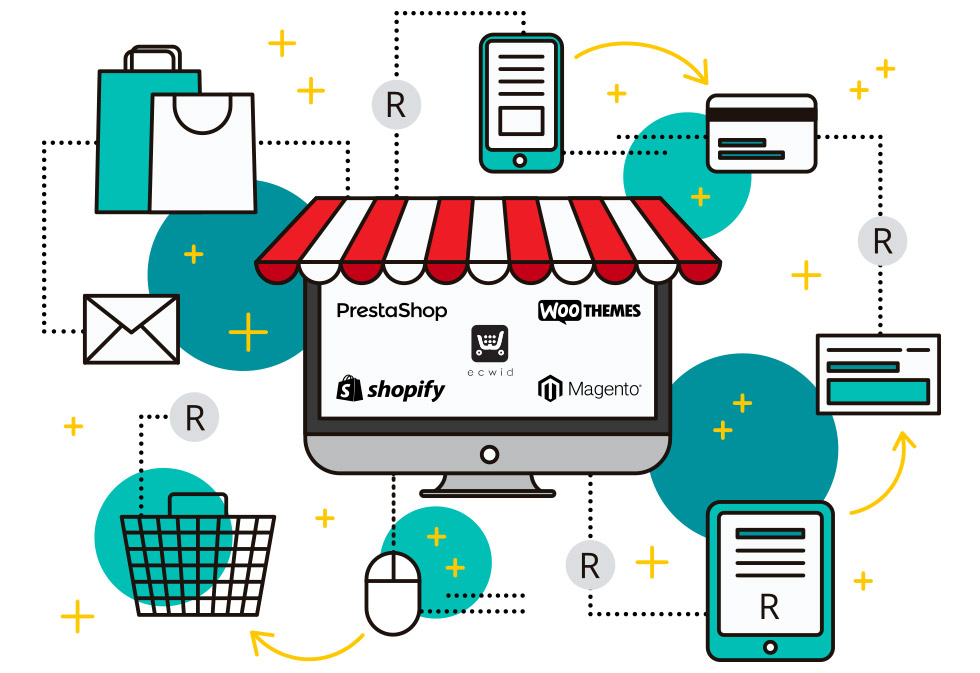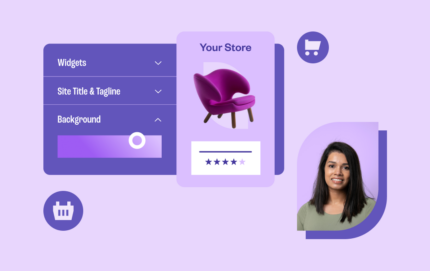Ecommerce in South Africa is rapidly expanding where the online spend for 2017 was estimated to have reached R10bn.
While still in its infancy compared to global standards, now is the time for South African entrepreneurs to take advantage of the Internet for building a business.
However, venturing into an unfamiliar online world may be daunting for the less tech-savvy entrepreneur. If you have started or you are starting an ecommerce business and you want to make sure you’re on the right path, here are four steps to guide you along the way.
1. Assess your product
Is your product a physical product, a digital product, an event, or a membership?
Physical product
Although selling a physical product online may remove the need for a physical store, you still have to consider logistics. This could include manufacturing, storing and delivering products if you’re creating your own, or receiving ready-to-sell products from your suppliers and delivering them to your customers.
When choosing an ecommerce platform for physical products, consider how the system handles stock management, stock variation, and the delivery of your products to your customers locally, nationally and globally.
Digital product
E-books, online courses, podcasts, email marketing and webinars have gained popularity with entrepreneurs all over the world as either as a business or for generating leads. Digital products are easy to sell online because it can be as simple as downloading or streaming a file.
Digital products require simpler shopping carts than physical products. While physical products can be bought in multiple quantities, for example, five small red t-shirts, it is unlikely for one buyer to purchase more than one e-book with the same title.
Event
Managing an event is a mammoth task. Fortunately, the internet has removed the hassle of managing event bookings by facilitating online booking and secure payment.
Membership or subscription
No longer limited by physical location, memberships bring together people with common interests no matter where they are in the world. Recurring membership fees or subscriptions could provide access to members-only benefits, such as discounts, discussions, exclusive training or networking opportunities.
As an entrepreneur in the digital age, there is no reason to limit yourself to only one product or one type. The most successful business models have a combination of all, for example, consultants could create an awareness of their services by offering e-books, workshops and memberships to additional training and benefits.
When deciding on the requirements for your ecommerce platform, consider which products and in which formats will appeal to your potential buyers and complement your core product range. This allows you to choose an option that can satisfy your current and future business goals.
2. Decide on the purpose of your business
Are you supplementing your income or is it a core business?
Some entrepreneurs have an online shop as a means of supplementing their income while for others, it’s a core business.
Supplementing your income
If you have a small product range, an e-book, occasionally host events, or want to build a community of members with similar interests as something on the side, it may be an overkill to invest time, money and effort into having a fully functional online shop of your own.
You could even set up some online courses of your own, if you have the knowledge to share.
In some cases, it may make better sense to use “Buy now” buttons instead of a shopping cart on your existing website, or join a marketplace, such as Takealot or Etsy to sell your arts and crafts, Quicket or Event Espresso to sell tickets to events, Meetup to grow memberships, and bidorbuy for everything else.
A marketplace allows you to upload product information and manage payments on your behalf. You either pay to be listed on their platform or they deduct a fee from every sale you make.
If your online business takes off and shows the potential of being a core business over time, you’d already have gained a loyal following that will happily support you as you make your transitions to platforms that can serve them better.
Core business
If your online shop is part of your core business, it requires time, effort, technical knowledge and maybe a bit of a budget depending on the platform you choose. As an entrepreneur, you’ll find yourself limited in some of these areas. Fortunately, there is an ecommerce platform to suit every business need.
3. Determine the primary purpose of your website
Before investing in a fully functioning ecommerce platform, the important consideration is the primary purpose of your platform:
- Are you primarily an information provider, for example a blogger that sells complementary products on your website?
- Or are you primarily an online store that may require additional features, such as blogging?
a. Primarily an information provider
For example, many entrepreneurs start experimenting with their online presence using Content Management Systems (CMS) such as WordPress for blogging or providing company information.
If you’re among this category of entrepreneur whose website or blog is to provide company, educational, newsworthy, or uplifting content, you an easily add a shopping cart feature to your website through plugins.
For WordPress the most popular ecommerce plugin is WooCommerce. WooCommerce allows you to sell digital products and memberships. They integrate with a number of plugins that enable selling event tickets, for example, Events Manager Pro for WordPress, and thousands of plugins that will automate and enhance the selling experience.
Another easy-to-use ecommerce plugin is Ecwid, which enables you to turn any website, including Joomla, WordPress, Wix and Facebook, into an online store within 10 minutes.
b. Primarily an online store
If the primary purpose of your business is to sell products, you need a fully functional ecommerce platform built specifically with selling in mind. The most popular ecommerce platforms today include Shopify, Prestashop and Magento. You could also consider Zen Cart, Open Cart and Virtue Cart.
4. Consider your time and financial resources
So far, we’ve covered a few questions about your product and your business that you need to consider when choosing an ecommerce platform. Further considerations are the ease of use, customisation and cost.
WooCommerce
WooCommerce is an open source plugin. If you know your way around WordPress, adding a WooCommerce shopping cart to your website or blog should be relatively easy. The huge selection of free and paid-for extensions allow your shopping cart functionality to grow with your WordPress site as your business grows.
Shopify
If the sole purpose for your online presence is to sell, Shopify is the first choice for most entrepreneurs who need a quick, easy-to-learn, easy-to-use, and affordable ecommerce platform. Your online store is hosted by Shopify, which eliminates the monthly hosting fees you would have with a self-hosted website. Shopify is easy to set up and comes with a 14-day trial.
Find out more about WooCommerce and Shopify in this blog post.
Ecwid
While not among the top ecommerce platforms for larger organisations, Ecwid is the perfect solution for entrepreneurs wanting to test the waters before committing to a permanent ecommerce platform. You can choose whether to host your shop on your existing website, on Facebook, as a starter shop hosted by Ewid, or all of the above! Ecwid also makes it possible to merchants to integrate their Wix website with PayFast.
Although Ecwid is free for a basic website, packages range depending on your business needs. Find out more about Ecwid in this blog post.
When deciding on the platform for selling your product online, consider the vision for your online business. Perhaps, in future, you may include elements that may not be considered necessary at the moment, but rather invest in a platform that will allow you to integrate easily and affordably instead of having to start from scratch when your business model changes.
If you’re still not sure which ecommerce platform is right for you, you could take advantage of the demos, free downloads, or free trials available to you for each of these options. The best way to make an informed decision is to get in there and give it a try.
PayFast makes it possible to accept payments from shoppers in a variety of secure and innovative ways. Whether you choose, WooCommerce, Ecwid, Shopify, PrestaShop, or Magento as your ecommerce platform of choice, PayFast has your back. All you need to do is a sign up for a PayFast account if you don’t have one already. PayFast integrates with more than 80 platforms from ticketing to billing.
To stay up to date with the latest PayFast news and updates, visit our website and follow us on Instagram, Twitter, LinkedIn or Facebook.




